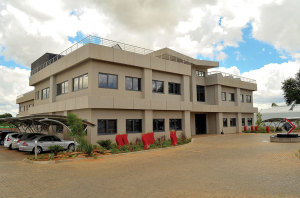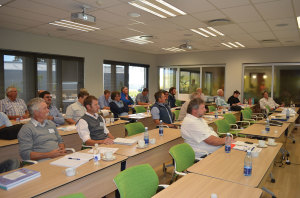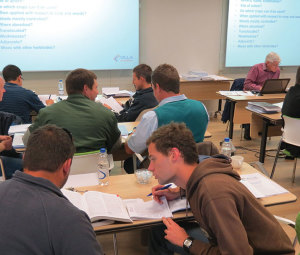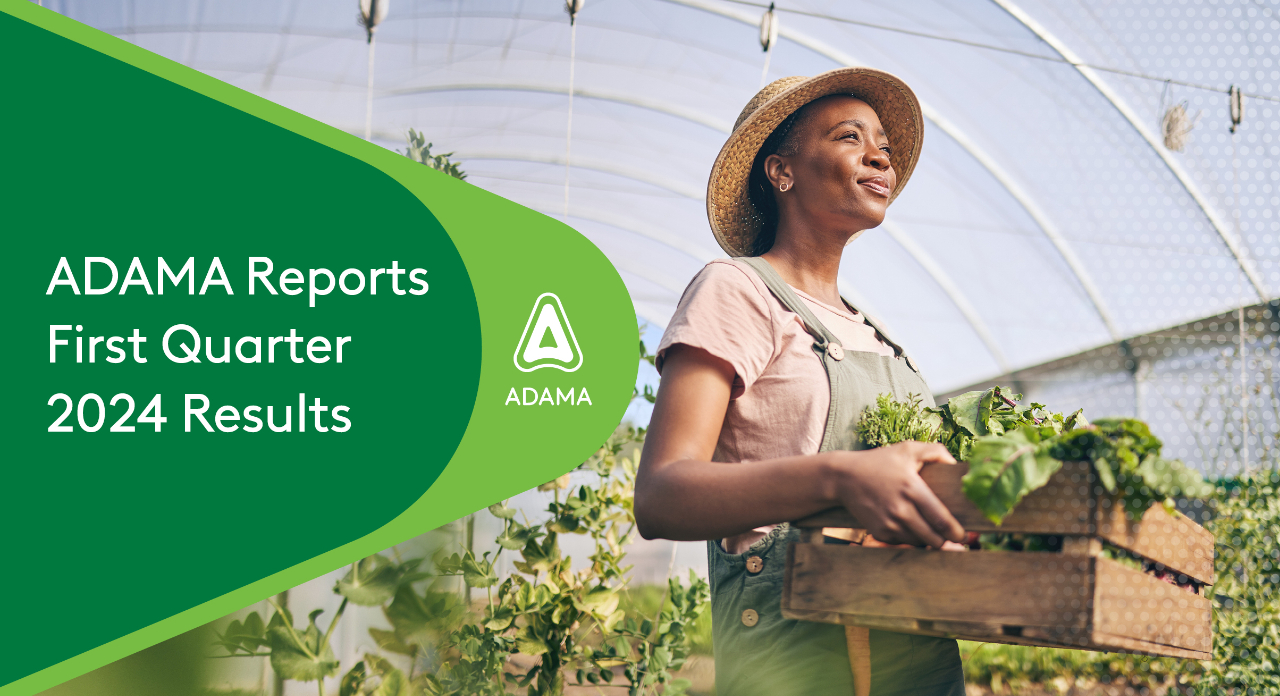Turning Talk into Action: Villa Academy Educates on Crop Protection Best Practices

Villa Academy’s Somerset West Training Center in Cape Town, South Africa.
Employee education is a trending topic among savvy corporations that want to help their people help the business. Coffeehouse chain Starbucks announced in June that it will provide college tuition reimbursement to employees. That same month AT&T partnered with an IT education company to create an entirely new formal degree system from which AT&T plans to recruit interns.
Crop protection, like any other industry, needs smart people. Companies tuned in to their workforce understand people want to succeed and be good at what they do, and education is just as valued as practical experience as a way to achieve the professional success and status, for which workers strive. From executives and CEOs to trainers and teachers, people in positions of authority know good team members take it upon themselves to become great team members when they are given the opportunity. Productive leaders know they should open that door, not only for classic overachievers but also for the average Joe, to unleash their inner rock stars and become the bona fide subject matter experts they are capable of becoming, with the qualifications to prove it.

Villa Academy’s Gauteng Training Center in Johannesburg, South Africa.
This is where Villa Academy comes in. It is the only institute of higher and continuing education focused solely on crop protection. Founded in 2011, it occupies two campuses in Cape Town and Johannesburg, South Africa and as of June, was in the process of applying for accreditation with the expectation of offering a certificate program in crop protection and diploma programs in plant protection and integrated pest management in 2015. Nearly 176 students of all ages, mostly sales agents ranging from entry-level recent university graduates to senior career professionals, matriculated last year. That number is slated to double in 2014.

Dr. Andre Schreuder
“We identified a need to bring young people into the industry, and obviously bringing in a new generation of salespeople necessitates someone to train them. I think there has been a lot of discussion in the industry about how it needs to be done, but not much action. And it just got to a point where we at Villa Crop Protection decided we would take the lead,” said Villa Crop Protection Managing Director Dr. Andre Schreuder.
Classes are one to three days long and cover topics including basic toxicology, crop protection reference material, product labels, disease management, plant growth regulators, weed management, biotechnology, rodent control, insect management, biologicals, handling complaints, adjuvants, application technology, viticulture, wheat and barley cultivation and fly control.
The planned accredited programs will include classes on formulation technology, financial management, sales skills, irrigation, bush encroachment, forestry and crop protection for citrus, vines, potatoes, small grains, stone fruit, pome fruit, tomatoes, maize, sorghum, beans, sunflowers and subtropical crops and will require two to five days of attendance.
The Academy is an offshoot of Johannesburg-based Villa Crop Protection, a supplier of more than 420 crop protection products that is strongly positioned in South Africa with a 20% share of the national market.

Dr. Charlie Reinhardt
“This is the type of venture that multinationals won’t touch because of its makeup. It’s something that can only be done locally. Villa Crop Protection is a 90% South African company, and therefore, it logically took the lead,” said Villa Academy Dean Dr. Charlie Reinhardt.
As managing director of Farmers Agri-Care, a South African retail distributor, Roy Cackett further explained, “Ten or 15 years ago, the multinationals were the training ground, but that’s now gone. The crop chemicals business is rapidly evolving, and it has become highly technical. We’ve been through a decade of experiential and self-training, which just isn’t good enough for the environment we play in.”
The position of agrochemical sales professionals is such that if they make a mistake, the consequences can wreak havoc not only on customer relations, but also on local economies, Reinhardt said.
Furthermore, because their customers often have agriculture degrees themselves, agents need the appropriate knowledge to be able to deal with customers and to be adequately equipped to talk with them on the same level.
“One way of giving back to the industry and the country as a whole is in terms of raising people’s level of education. That, to me, is a great revelation coming from the academic world and getting into the business world, to see that that kind of attitude still prevails,” said Reinhardt.
In fact, it is alive and well. An international survey by the Society for Human Resource Management found that attendance at learning events external to a company and coaching by external practitioners of a subject or discipline were seen as critical to success.

A mix of entry-level and senior-level professionals benefit not only from attending classes but from taking the opportunity to network.
Cackett is of the same mind. He arranged for Villa Academy lecturers to conduct a formal training program on biologicals at a company conference early in 2014 and made it mandatory for all 38 of his team members to attend. Next year he will send his employees to a Villa Academy biotechnology program.
“The success of our business is attributable to the type of people we have. So if Villa Academy can help provide a new generation of skilled and qualified people for the industry, it will help us maintain this profile. In fact, it can only be good for the industry at large,” Cackett said.
A commitment to creating an ethos or culture of ongoing self-improvement and learning in a business is the only way to stay ahead of the competition, and also attract the best suppliers and products upstream. Some aspects of crop protection that are quite new and technical lend themselves to being understood through a formal education program more than through field experience, he explained.
 This blend of academic and hands-on experience is a theme underlying the Academy’s philosophy. Like Reinhardt, the Academy’s approximately 30 instructors have built careers both in academia and in the field, a combination they leverage in diverse classrooms.
This blend of academic and hands-on experience is a theme underlying the Academy’s philosophy. Like Reinhardt, the Academy’s approximately 30 instructors have built careers both in academia and in the field, a combination they leverage in diverse classrooms.
“Part of the uniqueness of this, for me coming from an academic background, is that for the first time I am seeing students at different levels of experience in the same classroom. At first that would seem like a challenge for anybody working in an academic environment. But what I soon came to realize is how valuable it is from the feedback that we hear from students. When you have a mixture of people with 20 or 30 years of experience in the field with no tertiary education and then a graduate fresh out of university with zero experience, and they sit in the same classroom, they all come out better people, wanting to know more and realizing that they actually need to learn more,” Reinhardt said.
 The curriculum includes a heavy emphasis on the problem-based theory of learning in which students collaborate in groups to solve real-world examples of problems. The instructor acts as a facilitator to encourage self-direction and active engagement among students to a greater extent than the passive, teacher-centric lecture model allows.
The curriculum includes a heavy emphasis on the problem-based theory of learning in which students collaborate in groups to solve real-world examples of problems. The instructor acts as a facilitator to encourage self-direction and active engagement among students to a greater extent than the passive, teacher-centric lecture model allows.
Classes are intensive and students are held to high standards. In just the three-hour “Introduction to the Crop Protection Industry” class, students are expected to be able to demonstrate their understanding of key concepts including history of the industry, past and future industry trends, market segmentations, the role of Chinese and Indian suppliers of generic products, classification of suppliers and products, product lifecycle and post-patent technology, seeds and GM technology.
Assessment criteria in addition to in-class work includes written tests and a final project in which students create a production plan for a field crop produced in their area by researching its significance, evaluating the suitability of climate and soil for production and applying key principles of plant production and protection.
“This is not a commercial opportunity with rapid multiple-digit payouts. It’s saddening to listen to the cynics and skeptics who hover out on the edges. The crop chemical industry in South Africa is small. If everyone could understand and appreciate the big-picture benefits, we could all be winners,” Cackett said.






